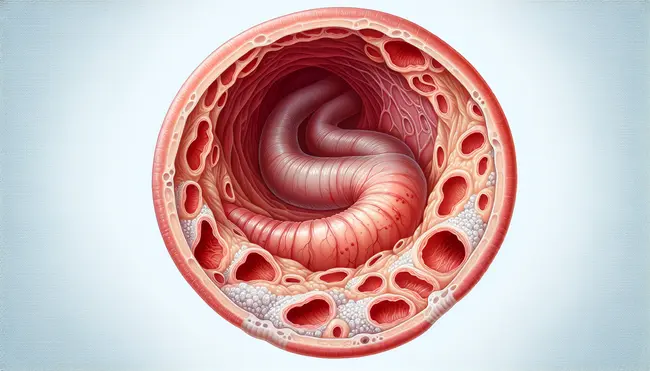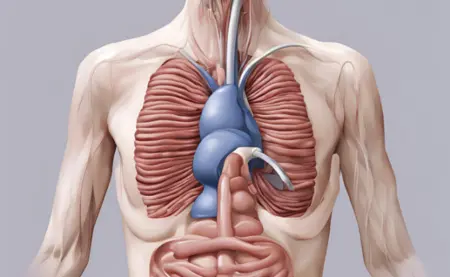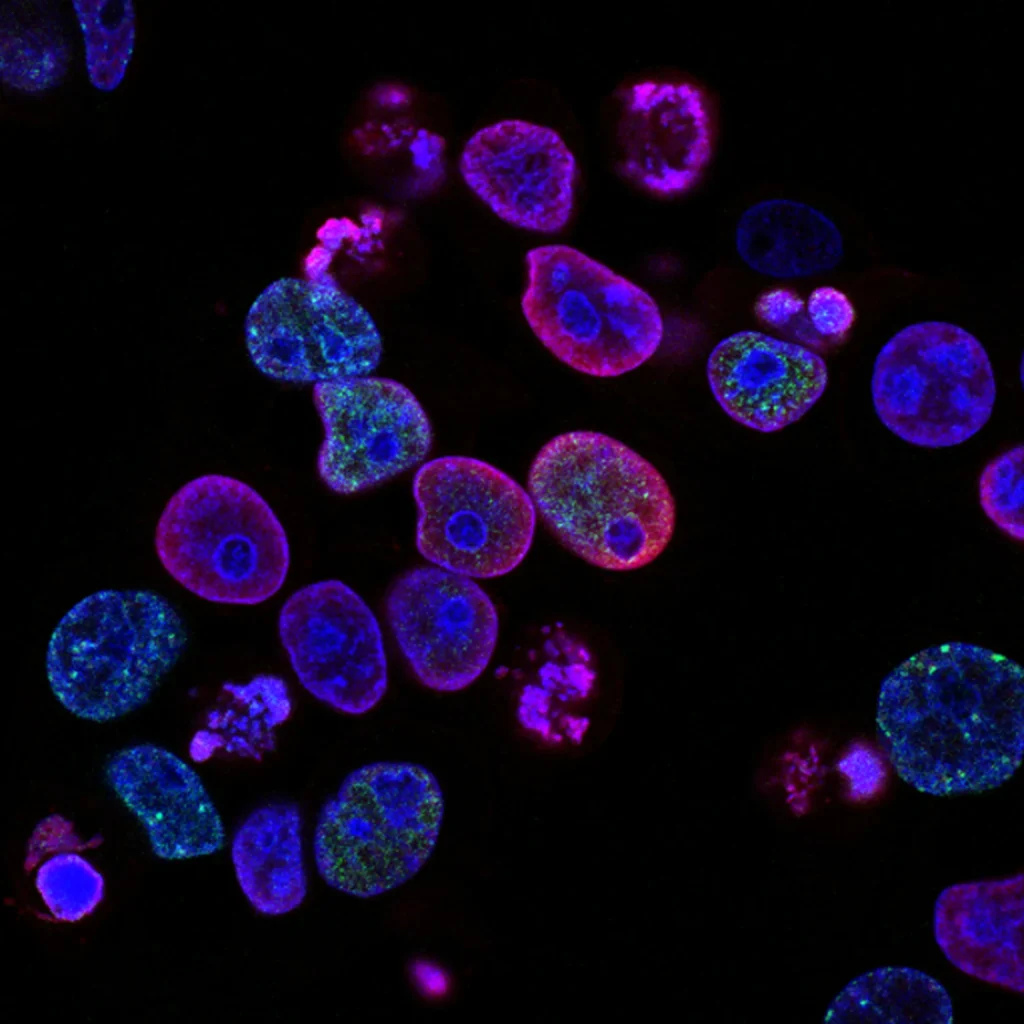How to Stop GERD Cough Instantly: 12 Effective Methods

This post may contain affiliate links, meaning I may earn a commission if you make a purchase, at no extra cost to you. I only recommend products I trust. Thank you for your support.
Hey there! If you’re reading this, you’re probably all too familiar with the discomfort and frustration of a GERD cough.
As someone who has wrestled with GERD cough myself, I know just how annoying and disruptive that persistent cough can be.
I remember a particularly tough period when my GERD cough was at its worst. It was around the holiday season, and I was indulging in all sorts of festive foods, spicy dishes, rich desserts, and lots of late-night snacking. The result? A persistent cough that left me feeling miserable.
But don’t worry, I’ve gathered some tried and proven tips and tricks to help you stop that GERD cough instantly.
In this article, we’ll explore the ins and outs of GERD cough and provide you with 12 practical and actionable steps and methods for how to stop GERD cough instantly.

What is GERD and How Does It Cause Coughing?
Before diving into how to stop GERD cough instantly, it’s important to understand what a GERD cough is, its causes, and its symptoms.
GERD, or gastroesophageal reflux disease, is a chronic condition where stomach acid or contents flow back (reflux) into the esophagus, the tube that connects the throat to the stomach.
This backflow can irritate the lining of the esophagus, leading to a range of unpleasant symptoms, including the dreaded GERD cough.
The cough associated with GERD is often triggered by the irritation and inflammation caused by the refluxed stomach acid.
As the acid reaches the upper esophagus and throat, it can stimulate the nerves in these areas, leading to a persistent, often dry, and unproductive cough.
The symptoms of GERD cough can vary from person to person, but some of the most common include:
- Persistent, dry, or hacking cough
- Coughing fits, especially after meals or when lying down
- Hoarseness or changes in your voice
- Sore throat or throat clearing
- Difficulty swallowing
- Chest discomfort or pain
If left untreated, GERD cough can lead to a range of complications, including:
- Damage to the esophageal lining (esophagitis)
- Scarring and narrowing of the esophagus (strictures)
- Development of precancerous changes in the esophagus (Barrett’s esophagus)
- Increased risk of esophageal cancer
How to Stop GERD Cough Instantly
Fortunately, there are several home remedies for GERD and effective strategies you can use to stop GERD cough in its tracks.
Here are some of the 12 effective methods on how to stop GERD cough instantly:
1. Sip Warm Water
One of the simplest yet most effective ways to calm a GERD cough is by sipping warm water. Warm water can help soothe your irritated throat and wash down any acid that might be lingering there.
I always keep a thermos of warm water by my bed, especially at night. Whenever that scratchy, irritating cough starts up, a few sips usually do the trick. It’s a quick and easy solution that requires minimal effort.
2. Honey and Warm Water
Honey isn’t just for sweetening your tea; it has natural soothing properties that can coat your throat and reduce irritation.
Mix a tablespoon of honey into a glass of warm water and sip it slowly. This combination is like a warm hug for your throat. The honey creates a protective barrier, and the warm water adds to the soothing effect.

3. Avoid Trigger Foods and Drinks
Certain foods and drinks are known to trigger acid reflux and worsen GERD symptoms.
I used to love spicy food, but after noticing a pattern with my GERD symptoms, I had to cut back. It was tough at first, but finding alternatives that didn’t trigger my symptoms was worth it.
For instance, I swapped out my morning coffee for herbal tea, and it made a noticeable difference.
I have written a comprehensive article about GERD diet plan listing the best foods for GERD disease and those to avoid.
Common GERD trigger foods include:
- Caffeine: Coffee, tea, and sodas
- Alcohol: Wine, beer, and spirits
- Chocolate: Sad but true
- Spicy Foods: Hot peppers, spicy sauces
- Acidic Foods: Citrus fruits, tomatoes
- Fatty Foods: Fried foods, high-fat dairy
4. Over-the-counter Antacids
If you need quick relief, over-the-counter antacids like Tums or Rolaids can be a lifesaver, especially for heartburn.
These work by neutralizing stomach acid, which can help reduce the irritation in your esophagus and throat.
Follow the instructions on the package, and be sure not to exceed the recommended dosage. These are great for instant relief but shouldn’t be relied on as a long-term solution.
Keep a pack in your bag or car. You never know when a GERD flare-up might hit, and having antacids on hand can make a big difference.
5. Baking Soda Solution
Here’s a remedy straight from the pantry which was recommended by a friend. Baking soda is a natural antacid that can neutralize stomach acid quickly.
I’ve used this in a pinch, especially when I’m out of antacids. It’s not the tastiest remedy, but it works remarkably fast. Mix a teaspoon of baking soda in a glass of water and drink it.
While effective, baking soda should be used sparingly. It’s high in sodium, and overuse can lead to other health issues.
6. Drink Ginger Tea
Ginger is known for its anti-inflammatory properties and can be very soothing for the digestive system. Drinking ginger tea can help calm the irritation in your esophagus and reduce coughing.
I usually make a fresh ginger tea by steeping sliced ginger in hot water, adding a bit of honey for sweetness.
7. Stay Upright
This might sound like a no-brainer, but staying upright can significantly help reduce your GERD symptoms, including cough. Gravity helps keep stomach acid from rising into your esophagus.
After eating, try to stay upright for at least 30 minutes. If you’re having trouble with nighttime coughing, consider propping up the head of your bed or using a wedge pillow.
I use a wedge pillow on my bed and trust me, it is a game-changer for nighttime reflux. Plus, it’s more comfortable than trying to sleep propped up with regular pillows.
Additionally, Avoid sleeping on your back, as this can exacerbate reflux.
8. Practice Deep Breathing
Stress can exacerbate GERD symptoms, including cough. Practicing deep breathing exercises can help calm your body and reduce stress.
For example:
- Find a comfortable position.
- Take a deep breath in through your nose for a count of four.
- Hold your breath for a count of four.
- Exhale slowly through your mouth for a count of six.
- Repeat several times until you feel more relaxed.
9. Chew Gum
Chewing gum might seem like an odd suggestion, but it helps increase saliva production, which can neutralize the acidity of acid reflux and improve swallowing.
Opt for sugar-free gum to avoid additional irritation from sugar and stick to a neutral flavor like mint or fruit.
Peppermint gum is often recommended, but be cautious; peppermint can relax the lower esophageal sphincter and potentially worsen GERD for some people.

10. Use a Humidifier
Dry air can make a GERD cough worse by irritating your throat even more. Using a humidifier can add moisture to the air and help keep your throat from getting too dry.
Run a humidifier in your bedroom at night. Make sure to clean it regularly to prevent mold and bacteria buildup.
When winter rolls around and the air gets drier, I always break out my humidifier. It not only helps with my GERD cough but also with my overall respiratory health.
11. Throat Lozenges
Sucking on throat lozenges can provide temporary relief by coating your throat and reducing irritation. Look for lozenges that contain soothing ingredients like honey, menthol, or eucalyptus.
I keep a stash of honey-ginger lozenges in my bag. They’re not only soothing but also taste great, making them a pleasant remedy to use.
12. Medications
If over-the-counter remedies aren’t cutting it, you might need something a bit stronger.
H2 blockers (like ranitidine) and proton pump inhibitors (PPIs like omeprazole or esomeprazole) can also reduce the amount of acid your stomach produces.
I was prescribed a PPI during a particularly bad flare-up, and it made a world of difference. However, I also focused on lifestyle changes to manage my symptoms in the long run.
Before starting any new medication, it’s crucial to talk to your healthcare provider. They can help determine the best treatment plan for you.
Natural Ways to Cure GERD Cough Permanently
While GERD can be a chronic condition, there are some natural ways to help manage and potentially cure it permanently.
Incorporating these strategies made a significant difference in managing the persistent cough. It took some time and adjustments, but was worth the effort.
- Adopt a GERD-Friendly Diet: Focus on consuming a diet rich in whole, unprocessed foods, such as fruits, vegetables, whole grains, and lean proteins, and avoid GERD trigger foods.
- Incorporate Probiotics: Consuming probiotic-rich foods or probiotic supplements can help restore the balance of gut bacteria, which can improve digestive function and reduce GERD symptoms.
- Practice Stress Management: Stress and anxiety can exacerbate GERD, so finding healthy ways to manage stress, such as through meditation, yoga, or counseling, can be beneficial.
- Maintain a Healthy Weight: Excess weight can put additional pressure on the stomach, leading to more frequent reflux. Losing weight and maintaining a healthy BMI can help alleviate GERD symptoms.
- Quit Smoking and Limit Alcohol: Smoking and excessive alcohol consumption can weaken the lower esophageal sphincter, making it easier for stomach acid to reflux.
Can GERD Cause Shortness of Breath?
Yes, GERD can potentially cause shortness of breath in some individuals. The refluxed stomach acid can irritate the airways and trigger the cough reflex, which can make it difficult to breathe normally.
In severe cases, the acid can even reach the lungs, causing inflammation and further respiratory distress.
How Long Does GERD Last?
The duration of GERD can vary greatly from person to person and depends on several factors, including the severity of the condition, treatment adherence, and lifestyle changes.
For example, acute episodes of GERD may last for a few days to weeks. These are often triggered by specific dietary choices, stress, or other temporary factors.
Chronic GERD is a long-term condition where symptoms persist or recur over months or even years and without proper management, GERD can become a lifelong issue.
When to See a Doctor
If your GERD cough persists despite trying these remedies, it’s important to consult with a healthcare professional to identify any underlying issues and develop a comprehensive treatment plan.
Warning Signs include:
- Difficulty swallowing
- Persistent nausea or vomiting
- Unexplained weight loss
- Severe chest pain
Resources
Conclusion
GERD cough can be a frustrating and debilitating condition, but with the right strategies and treatment, you can find relief fast and permanently with long-term strategies.
So, If you are searching for how to relieve GERD chest pain fast or how to stop GERD cough instantly, the methods mentioned in this article can help you manage GERD cough and chest pain thoroughly.
By understanding the underlying causes of GERD cough and implementing lifestyle changes you can take control of your symptoms and improve your overall quality of life.
If lifestyle changes and over-the-counter medications don’t provide relief, seeking medical advice is essential to rule out other potential causes.
Wish you a quick and fast recovery!
- Discover 15 ways how to make sea moss gel
- 7-day Saxenda diet plan for weight loss
- Best foods to eat after tooth extraction
- Is eating corn good for weight loss
- Low FODMAP meal plan
- 7-day meal plan for cancer patients
- Discover foods to avoid with pituitary tumor
- Foods to avoid while breastfeeding
- Foods to avoid with Urinary Tract Infection
- Low-sodium diet meal plan
- Foods to avoid if alkaline phosphatase is high
- 5 foods to avoid when taking trulicity
- Low potassium diet meal plan
- Best diet for endometriosis
- Mounjaro uses and side effects
FAQs
What is the main cause of GERD cough?
The main cause of GERD cough is the backflow of stomach acid into the esophagus, which can irritate the lining and trigger the cough reflex.
How do I know if my cough is related to GERD?
If your cough is persistent, dry, and often worse after meals or when lying down, it may be a sign that it’s related to GERD.
Other symptoms like hoarseness, sore throat, and difficulty swallowing can also indicate GERD cough.
Can GERD cough lead to any long-term health problems?
If left untreated, GERD cough can lead to more serious complications, such as damage to the esophageal lining, scarring, and an increased risk of esophageal cancer.
What are the best over-the-counter medications for GERD cough?
Over-the-counter antacids, H2 blockers, and proton pump inhibitors can all help provide relief for GERD cough by reducing stomach acid production and/or neutralizing existing acid.
Can GERD cough be a sign of a more serious underlying condition?
In some cases, GERD cough can be a symptom of a more serious underlying condition, such as esophageal cancer or a respiratory disorder.
If your GERD cough is accompanied by other concerning symptoms, it’s important to seek medical attention to rule out any underlying health issues.
Disclaimer: The information provided in this article is for educational purposes only and is not intended as medical advice.
Always seek the advice of your physician or other qualified health provider with any questions you may have regarding GERD cough.
Additionally, this article contains affiliate links, which means I may earn a commission if you click on the link and make a purchase which comes at no extra cost to you.




